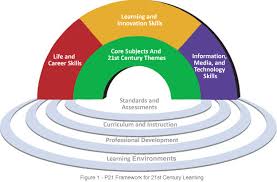
High School is one of the last steps before adulthood, and is one of the last “safe places” for young adults to learn the lesson’s they need to navigate the consequences of their choices. Some of my students need these lesson’s to help them understand their roles and responsibilities in the community. Moral development is a function that we provide, even if it is in the simplest form of reinforcing norms. I am more inclined to see school as an integral part of moral development. Lawrence Kohlberg, a psychologist who extended Piaget’s theories, explains the actions and responses in his stages of moral development. Cognitive development is fundamental to his three levels of morality, where he used situations that required moral reasoning to evaluate how one responds to what is right, especially when it was not evident what to do. (Kohlberg)

Kohlberg moral development video:
When cognitive development is involved, it is impossible to point to certain ages where one is guaranteed to be when evaluating the level of maturity and responsibility. Of Kohlberg’s levels of preconvention, conventional and post conventional morality, high schools fall mainly in the third area of conventional morality. This is where our students start to integrate the rules of society into their understanding of what is good or bad, but idealized on what is social responsibility, leadership and citizenship. (Kohlberg)
Career and Technical Education (CTE) programs is where the Computer Science courses, which I teach, are taught in most high schools. Being part of CTE is not a requirement, unless specific teaching endorsements are required, it ultimately provides the districts with “enhanced funding” if taught through this department. The enhanced funding of CTE courses helps pay for the Computer Lab I have to teach in. The goal of CTE is to provide high school programs that provide 21st century, academic and technical skills for all students.
While most CTE courses are not considered part of the academic realm, this is far from reality. The narrative of Role Playing as described in Models of Teaching describes what is inherent in CTE courses “the involvement of participants and observers in a real problem situation and the desire for resolution and understanding that this involvement engenders.” (Pg 262)
Every course that is taught must be approved through the Office of the Superintendent of Public Instruction (OSPI), CTE department’s pathway supervisor. Once this is completed, the school or district, if there are multiple schools, will be approved to teach the course. Each course must document its standards, performance assessments, common core standards taught and incorporated 21st century skills. Each Teacher must provide instruction in core leadership skills from each of the categories of leadership skill development, the 21st century skills which inherently include citizenship, are integrated and assessed (CTE 2015). What are 21st century skills?
Learning & Innovation
Creativity and Innovation
Think Creatively
Work Creatively with Others
Implement Innovations
Critical Thinking and Problem Solving
Reason Effectively
Use Systems Thinking
Make Judgments and Decisions
Solve Problems
Communication and Collaboration
Communicate Clearly
Collaborate with Others
Information, Media & Technology
Information Literacy
Access and Evaluate Information
Use and Manage Information
Media Literacy
Analyze Media
Create Media Products
Information, Communications and Technology (ICT) Literacy
Apply Technology Effectively
Life & Career Skills
Flexibility and Adaptability
Adapt to Change
Initiative and Self-Direction
Manage Goals and Time
Work Independently
Be Self –Directed Learners
Social and Cross-Cultural Skills
Interact Effectively with Others
Work Effectively with Diverse Teams
Productivity and Accountability
Manage Projects
Produce Results
Leadership and Responsibility
Guide and Lead Others
Be Responsible to Others
Sample activities that would fulfill the criteria for the area of Learning & Innovation could include; Public Speaking, Emails, Letter Writing Skills, Group Presentations, Leading/Participating in Group Projects, and Structured Role Play. While I consider Computer Science classes as academic courses, I work to make my curriculum rigorous and relevant, and embedding 21st Century skills benefits my students in other classes and life.
Career and Technical Education. (n.d.). Retrieved May 10, 2015, from http://www.k12.wa.us/CareerTechEd/TwentyFirstCenturySkills.aspx
Joyce, Bruce R.; Weil, Marsha; Calhoun, Emily (2014-06-05). Models of Teaching (9th Edition) (Page 262). Pearson.
Kohlberg, L. (1981). The philosophy of moral development: Moral stages and the idea of justice. San Francisco: Harper & Row.